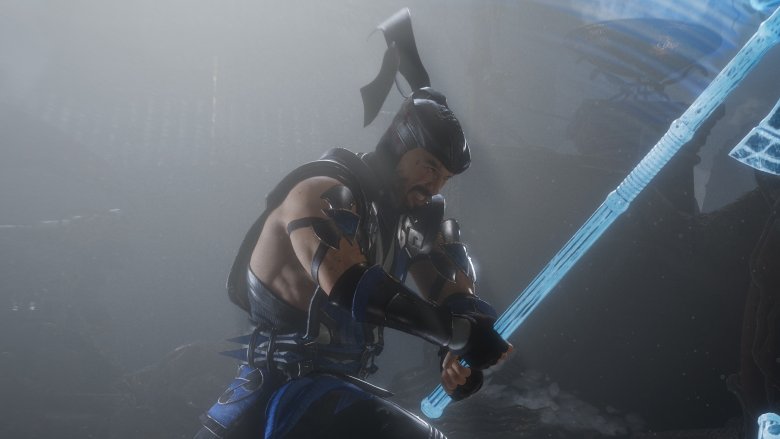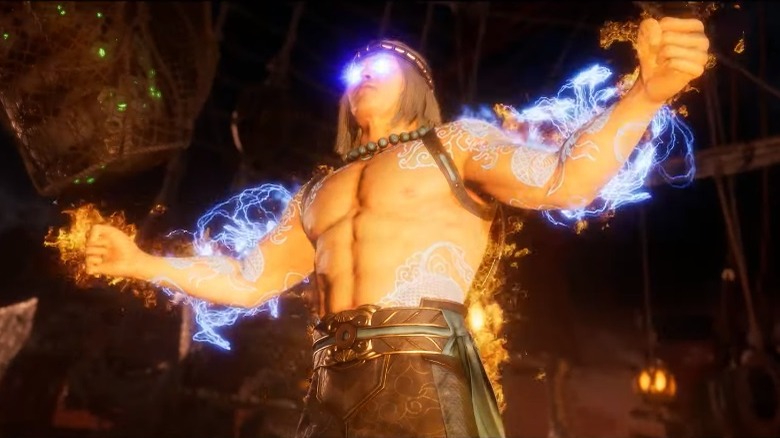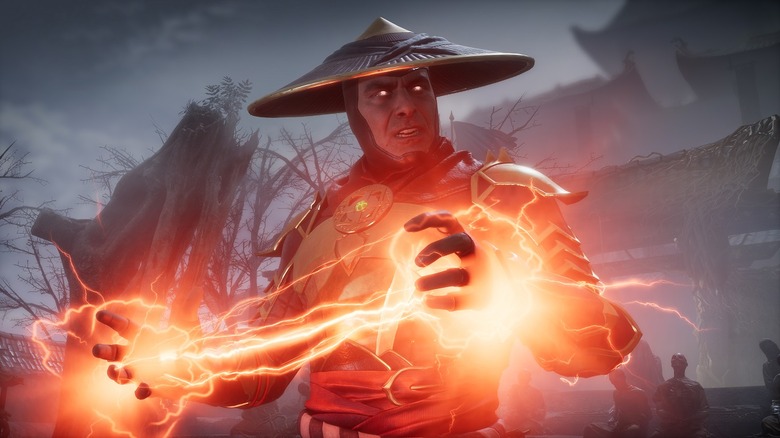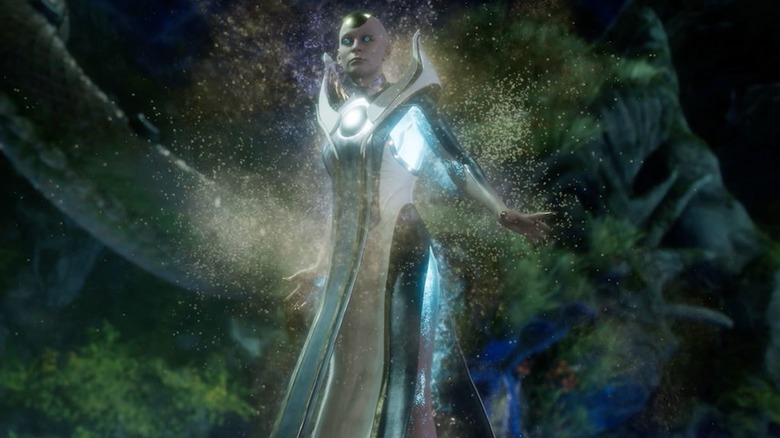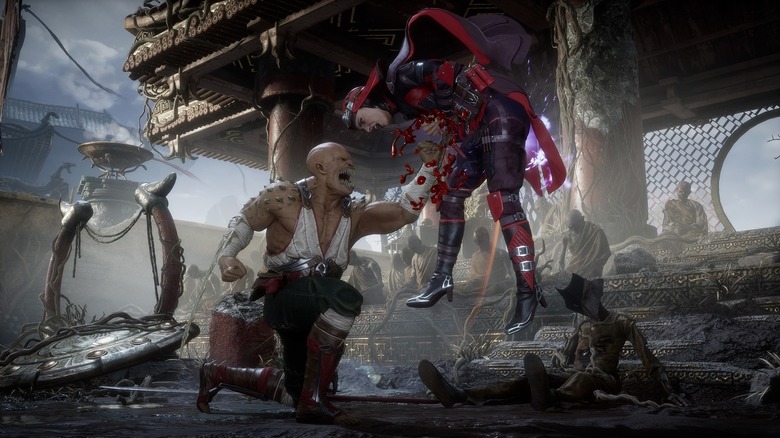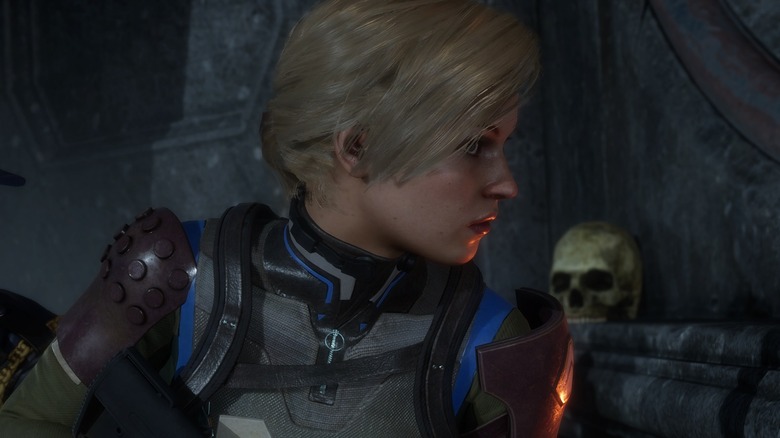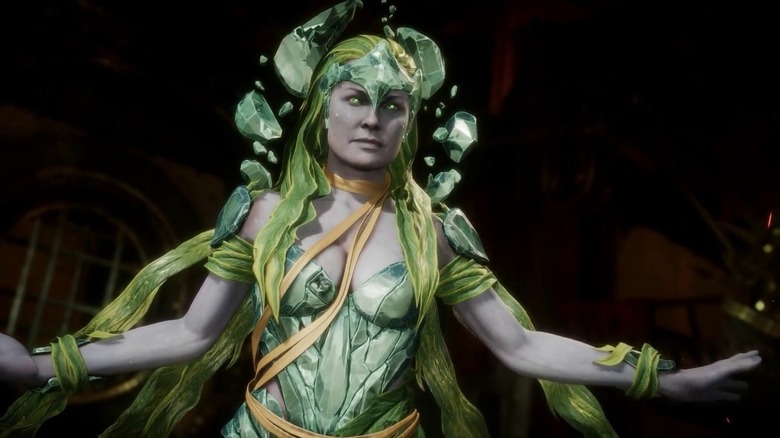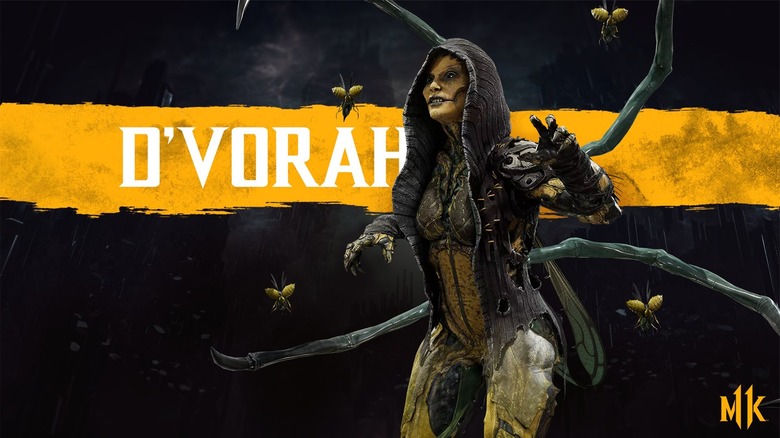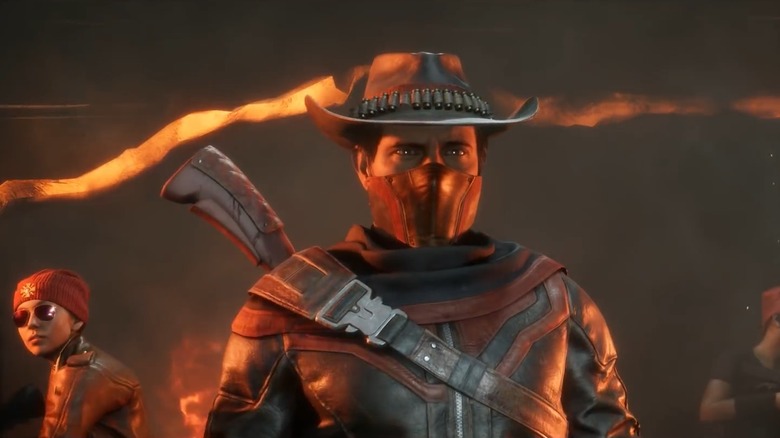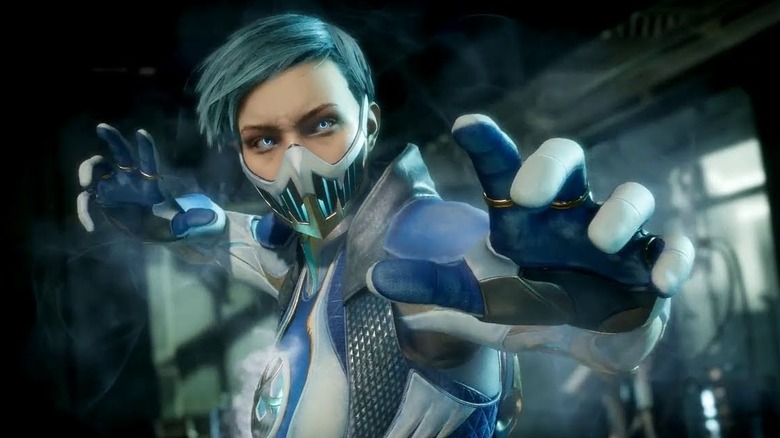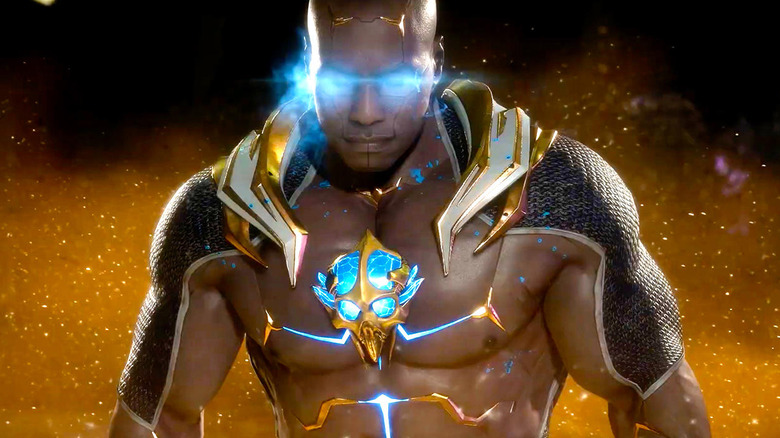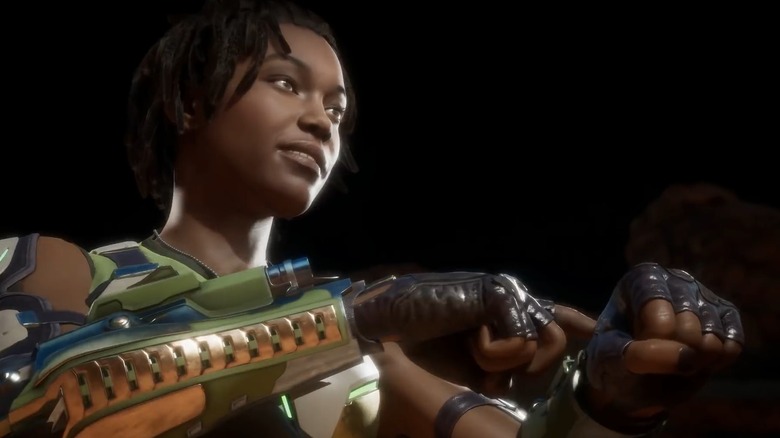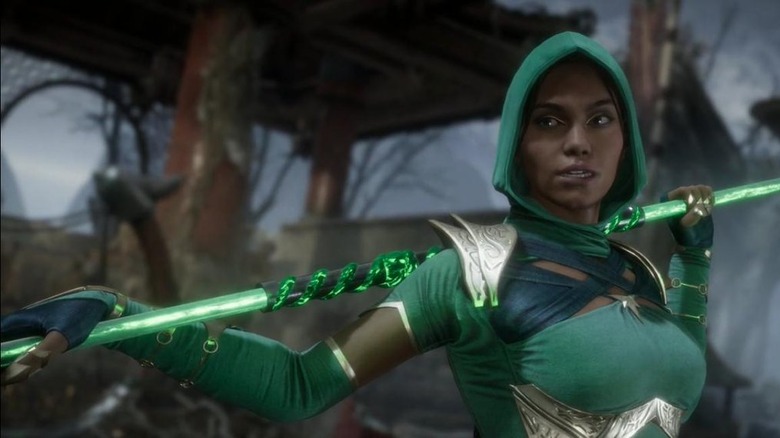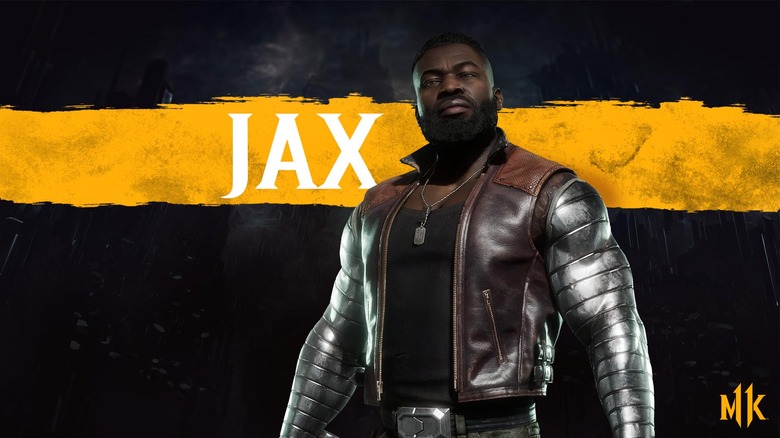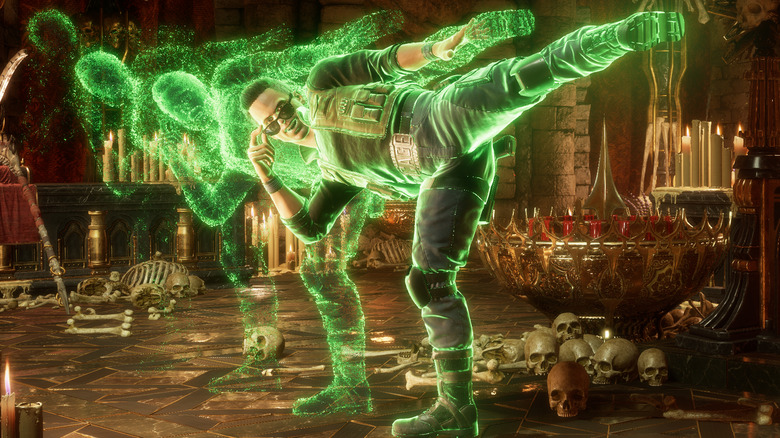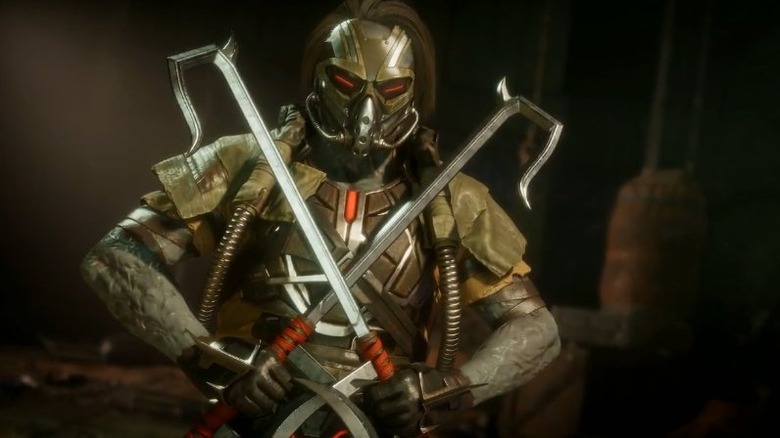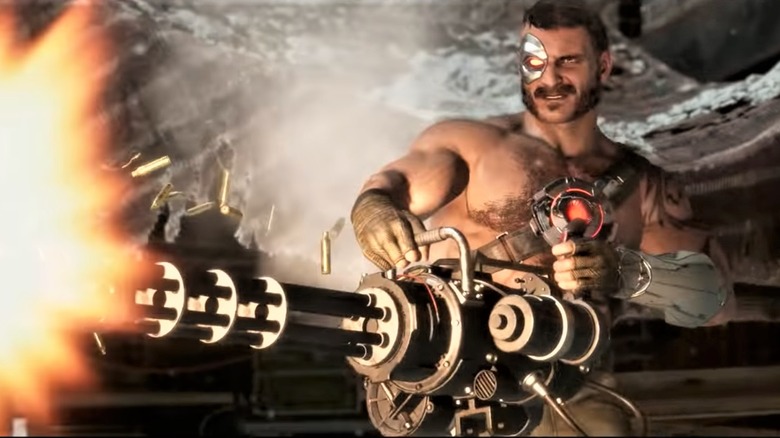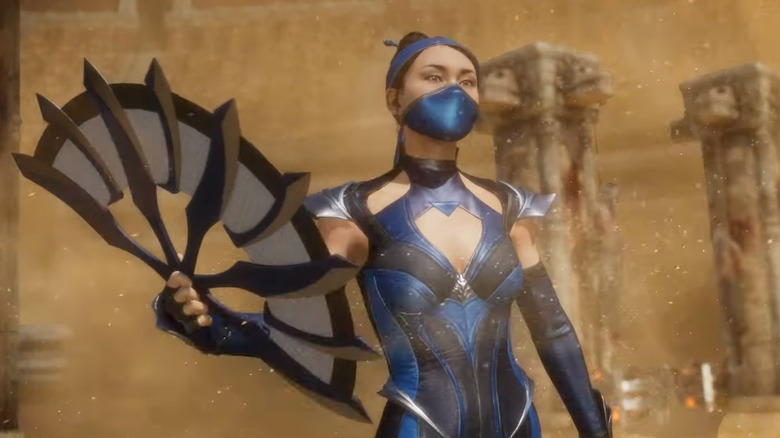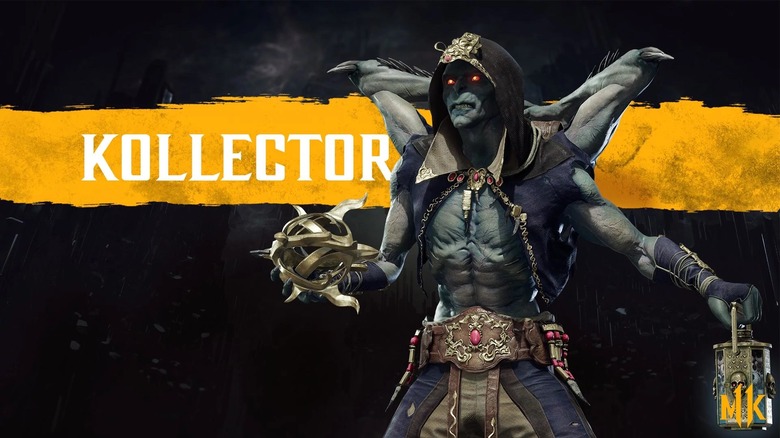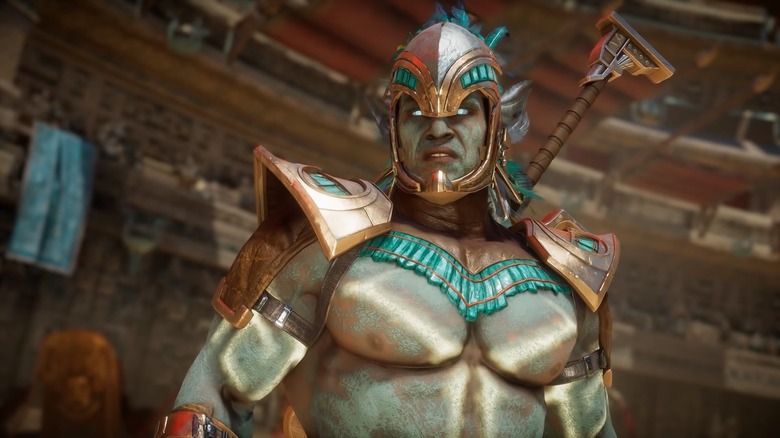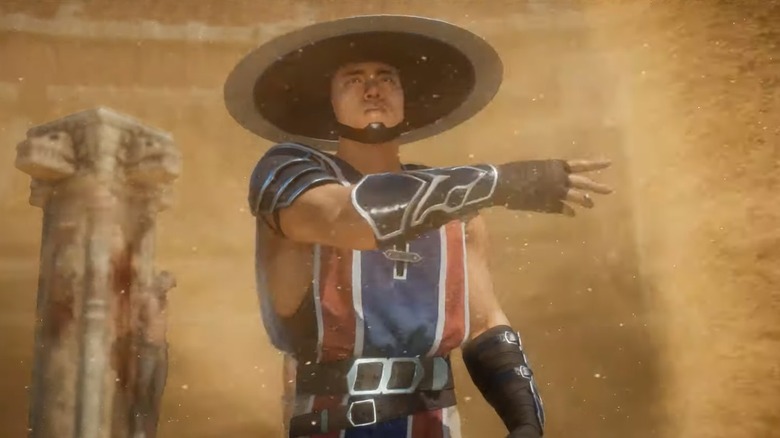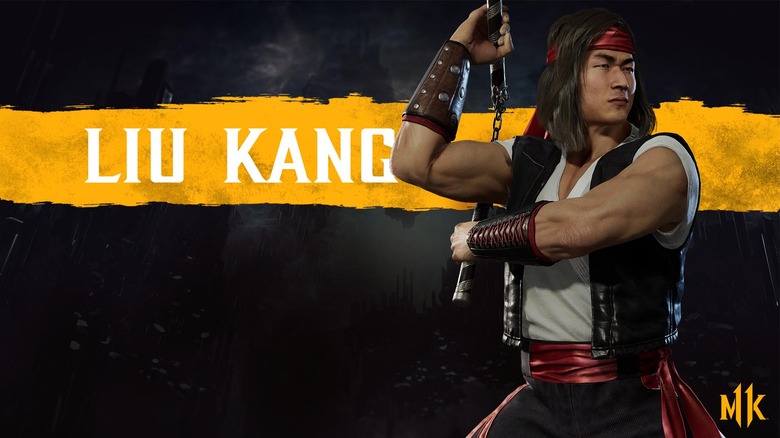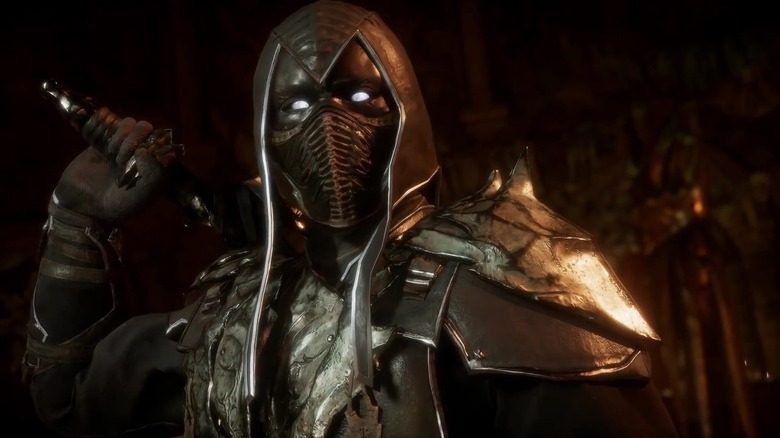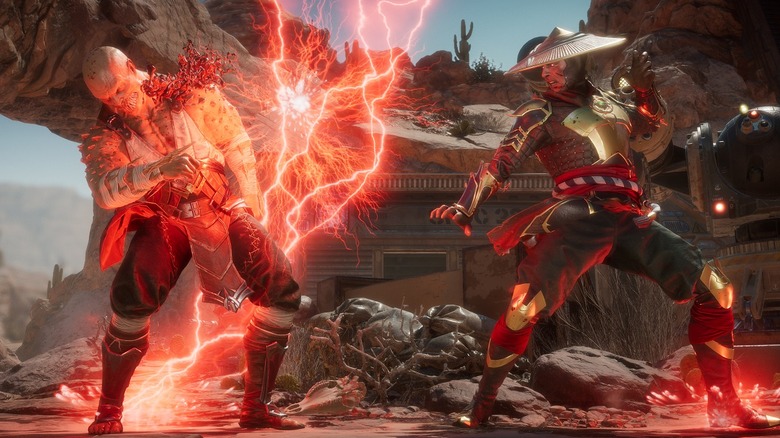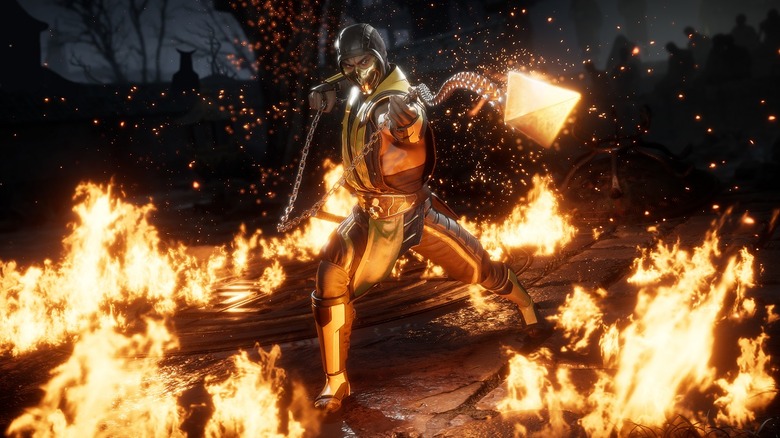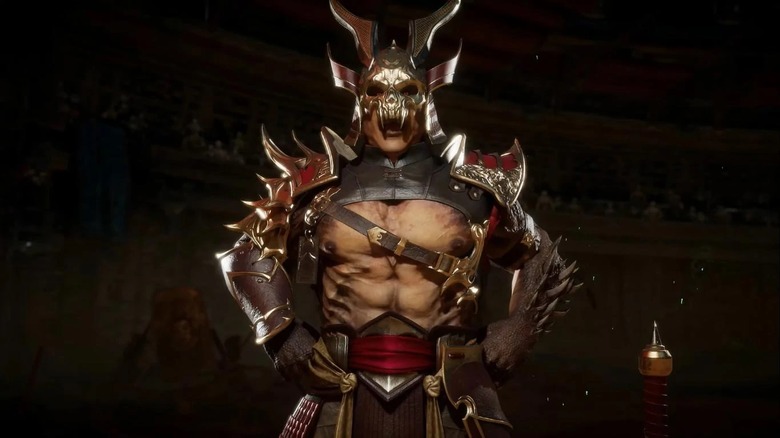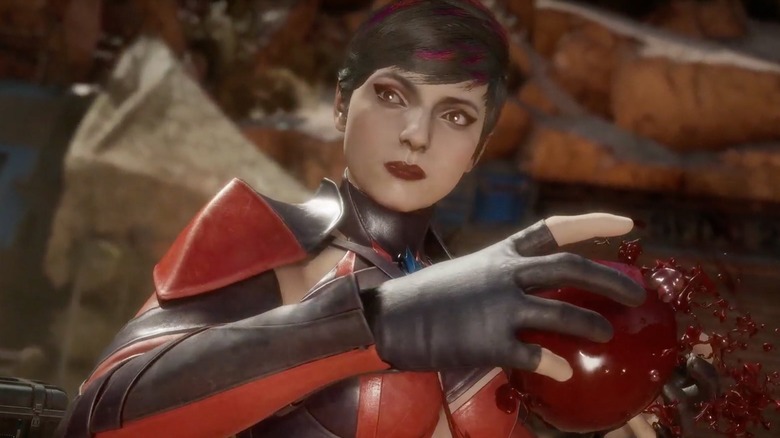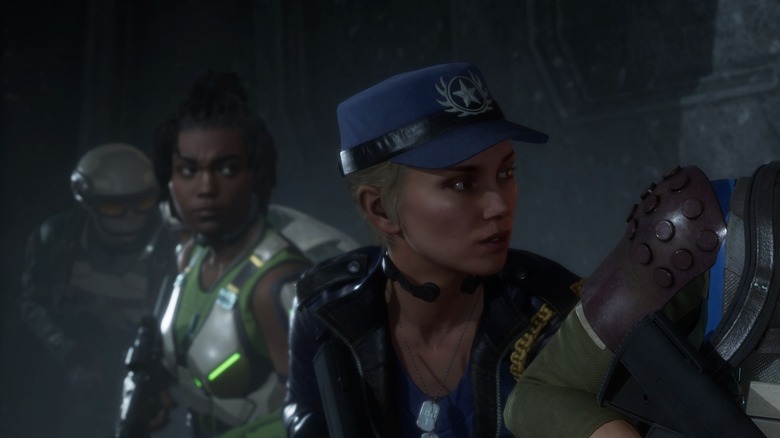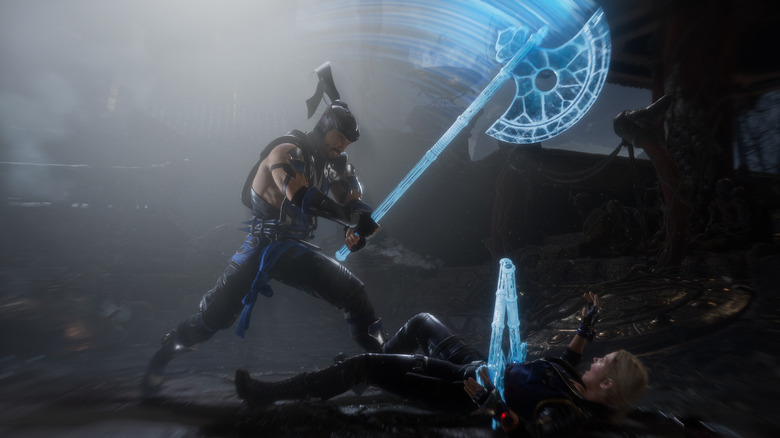Every Mortal Kombat 11 Ending Explained
Mortal Kombat 11 is upon us and, like the last few iterations of the gory fighter, it actually features a pretty impressive story to back up all the punching and removal of limbs. Not only does it feature multiple possible endings for its central story (a sprawling, time-traveling affair that pits nearly every character up against a past version of themselves at some point), but each character has a separate non-canon ending if you beat a certain mode with them.
We're going to breakdown every ending available in Mortal Kombat 11. We'll start with the different endings for the main story mode, then we'll focus on each individual character's ending; they are unlocked by defeating the "Klassic Tower" mode with each fighter. All of those endings show what would happen if the chosen character gained the ability to control time; by defeating Kronika, the game's big bad, they learn to harness her powers.
Story Mode - Best Ending
The final ending of Mortal Kombat 11's story mode sees Raiden and Liu Kang going all Dragon Ball Z and fusing together to form a god. Fire God Liu Kang battles Kronika in her fortress and, if you are able to get through the fight with her without losing a single round, you'll get the best ending.
In it, Liu Kang gains control of Kronika's sands of time and sets out to create a better world with Kitana as his queen. Raiden actually becomes a mortal, losing his elder god status and handing over the "Protector of Earthrealm" title to Liu Kang.
We'll have to wait and see what Liu Kang and Kitana's vision of peace will look like in later iterations of Mortal Kombat. Considering the dark path the two have been down, it may not be all roses and champagne with them in charge.
Story Mode - Good Ending
This ending occurs if you are unable to have a perfect final battle against Kronika, but you still manage to defeat her. It is essentially the same ending as the "Best" ending; this time, however, instead of reshaping the world as King and Queen, Liu Kang and Raiden partner up to shape the world.
Again, no guarantee that those two would do a good job of creating history; these two have screwed up plenty before.
The romantic angle of "Liu Kang + Kitana = 4eva" elevates it above this one, but who knows? Maybe Liu Kang and Raiden would spark up a relationship? Eternity is a long time ...
Story Mode - Bad Ending
This one hardly counts as an "ending," as you are given the chance to retry immediately. However, fail in your bid against Kronika and you'll see how things turn out for Liu Kang. Lose the battle, and the newly minted Fire God will get his head lopped off as the controller of the sands of time sets off to ... do her bad, time-magic stuff.
Not really an ending, as you can retry ad infinitum, but Kronika's quest to balance the realms starts with her knocking your head off. Don't let it end there.
Baraka enslaves the world
Baraka is essentially just a savage warlord: he typically doesn't lead with his brains, but with his claws and teeth. His ending continues that tradition, as he uses his newfound time-control to go back in time and unleash his Tarkatan army on the realms, long before they were enslaved by Shao Kahn.
Baraka conquers Edenia, Outworld, and finally challenges Earthrealm in the Mortal Kombat tournament. Considering Baraka's ending concludes with him holding up Raiden's severed head and exclaiming "we haven't run out of meat since," it seems likely that he and his Tarkatan warriors enslave the entire world. Harsh.
Cassie Cage brings her mom back
Remember how the best Twisted Metal endings were the ones where the character either got something awesome or had their wish turned around horribly on them? Our girl Cassie doesn't manage either of those.
Cassie rejects her cosmic powers, stating that type of thing is for the "Liu Kangs and Kitanas of the world." Instead, she remakes the timeline to become a "model soldier" and command the forces of Earthrealm.
At least she still remembers her inspirational parents when it's all said and done: she brings her mother back to life and chugs a beer with her. Maybe Cassie should have gone back in time and stopped chewing bubble gum while fighting. That's a fatality waiting to happen.
Cetrion burns it all down
One of Mortal Kombat 11's new characters, Cetrion is obsessed with balance throughout much of the game's story mode. However, a battle with Liu Kang changes her perspective, and her ending harps on a major theme of Mortal Kombat 11: balance is not only possible in the world, but inevitable.
Cetrion uses her newfound abilities to travel back in time in an attempt to help good overcome evil. But she runs into a problem: mortals keep fighting and killing each other, no matter what she does. Good can never really overcome evil; there will always be balance.
So she gets mad and burns everything to the ground. She wants mortals to stay humble, and that's certainly one way to do it.
D'Vorah creates a new pest to deal with
D'vorah has seen her people subjugated, executed, and hunted just for existing. When she takes control of Kronika's hourglass, she's pretty pissed that the insectoid Kytinn have been labeled as vermin and sets out to do something about it.
She kind of has a point: she argues that humankind will unite against common foes but, absent one, will just kill one another. Kytinn all work together to assure the survival of their species, however. So she decides that, in her alternate history, people will be the pests, and Kytinn the dominant race.
Her ending finishes with images of monstrous Kytinn eating tiny people and tearing them in half. Just when we were starting to get on her side a bit, too.
Erron Black just keeps on wandering
Erron Black's ending is fairly similar to Cassie Cage's. His just seems a bit cooler because "mysterious lone gunslinger" is more fascinating than "cocky soldier." Erron doesn't just refuse the mantle of "Lord of Time," though. He also irrevocably changes things so no one can mess with time again.
Instead of using Kronika's hourglass to create scores of towns that are, in fact, big enough for the two of us, Erron throws the hourglass into the Sea of Blood. He does this to ensure that no one can alter or see through time again, leaving the future a total uncertainty.
Considering his improvisational attitude, it seems fitting that Erron Black thinks his best future is one that no one, not even himself, can see coming.
Frost makes sure no one forgets about her ever again
Frost has got some serious dismissal issues: she's tired of being overlooked, forgotten, and underestimated. She uses Kronika's hourglass to ensure that never happens again.
She becomes the head of the Lin Kuei, the ancient warrior society led by Sub-Zero, and she seeks to use its army of ninjas to travel through time and wipe out anyone who opposes (or challenges) her.
On one hand, kind of egotistical and unfair. On the other, can't Frost go back in time and make a sweet '80s movie about time-traveling ninjas with ice powers? It sounds like something "Ninja Mime" himself, Johnny Cage, would have already been in.
Geras decides to just take a nap
Although he serves Kronika through much of Mortal Kombat 11, Geras does so very unwillingly. Defeating Kronika finally allows him a chance to rest. Instead of the constant cycle of rewinding and restarting time, Geras decides to create one perfect timeline where he won't have to meddle in the affairs of mortals.
Guess how well that works out?
Geras gets frustrated because of that whole "free will" thing; mortals won't choose the paths that he sets out for them. As he keeps attempting to reshape time, he realizes the "Lord of Time" gig is essentially worthless as long as free will is around.
He sees this as a blessing, however. Geras sacrifices himself into the hourglass, allowing it to run itself and giving him a chance to finally take a load off. Well played, sir.
Jacqui Briggs restores her dad's life
Oh man. This one is kinda brutal.
Jacqui loves her dad, Jackson "Jax" Briggs, and hates how he suffered over the storyline of Mortal Kombat. Jax was turned into a revenant (sort of an undead puppet) of Quan Chi and Shinnok in earlier titles. Even though he has regained his control and humanity, Jax is still haunted by his time in the service of the evil sorcerers. Jacqui seeks to undo her father's time as a revenant.
However, Jax met Jacqui's mother while he was undergoing treatment for his PTSD. Without serving as a revenant, he never goes to treatment, meaning he never meets mom, meaning Jacqui is never born.
Jacqui knows this will happen, but considers it a noble sacrifice. She wishes her father good luck as she dissolves to dust, Infinity War-style.
Jade basically out-Raiden's Raiden
Jade does pretty good work in her Mortal Kombat ending. She waffles between bringing back her lover, Kotal Kahn, or her best friend, Kitana, to serve as the Kahn of Outworld. She then makes a way better choice: screw that noise and bring back the world that Shao Kahn destroyed.
As the Jade of the new timeline grows up, she realizes her powers and eventually becomes the protector of Edenia. Eventually, this takes her as far as challenging (and defeating) both Shinnok and Cetrion. This, presumably, keeps the realms at peace, as it has always been the meddling of the gods that caused the realms to go to war with one another.
Nicely done, Jade.
Jax stops slavery from ever happening
Ah, of course. The one that raised an internet controversy. Jax's ending starts like you'd expect: Raiden warning him not to overreach, as he'd be likely to lose things he held dear if he manipulates time too much. It seems likely Jax will do something to forego his time as a revenant.
We see images of Africans being led to ships in chains. Time reverses, and we then see images of European explorers greeting African rulers with respect. Soon, Jax is shown walking in a modern city with his adoring family by his side. "I didn't get it right the first time. Or the second. Or even the third. But eventually, I knock it out of the damn park," he states.
Why did this one upset people again?
Johnny Cage relives it all again with a minor tweak
Johnny's ending is extremely similar to Cassie's, as he realizes that he would never have transformed from bro-tacular movie star into functional human being without living the same life he had. He has to let fame go to his head and hit rock bottom in order to actually gain the love and respect of his family and friends.
So he uses Kronika's power to restore the universe's timeline exactly like it was. He goes through all the same ups and downs, making a single change: he rescues Sonya at the beginning of Mortal Kombat 11's story, since "Johnny Cage flicks always have happy endings."
His ending finishes with a shot of Johnny and Sonya swinging on a vine, Tarzan-style. Alright then.
Kabal retires to a simple life after getting bloody revenge
Another character who doesn't want the gig of "Lord of Time," Kabal is a bit of a slacker at heart. All that responsibility just won't work for a guy like him.
Instead, he rewinds time and offers control of the hourglass back to Kronika — with a modest request. He wants a chance to "take out anyone who's ever tried to burn" him.
Cut to a shot of a bloodied Kabal, standing on top of a pile of dead bodies — which includes Kano and Sonya — triumphant. Kabal then gets to retire to a wife and kids in a mansion that looks more like a military compound. Little Easter egg: Kabal's wife is former a MK fighter, Sareena.
There's even a tank at their house! And a sweet doggy!
Ah yes, Kabal, just a simple family man who wants a relaxing life, full of laughing with children, marrying a demon, and owning a tank.
Kano learns that victory without work means nothing
Kano's ending starts out exactly like you'd expect: the depraved killer sets up a timeline where everything goes his way. He sits on a throne, drinking whiskey and watching two bikini-clad women battle in a steel cage.
But Kano, surprisingly, has a moment of self-reflection: getting everything you want without working for it is boring. So he sets up a new timeline where he actually has to go through effort to get things, and he enjoys it much more.
He tells us that he doesn't always win in this new timeline, but he usually does. Considering the last shot of his ending is of Kano in a shootout with Sonya and Jax, holding the Amulet of Shinnok (one of the most powerful artifacts in Mortal Kombat lore), he's not doing too badly for himself.
Kitana becomes a powerful ruler
Like Jade, Kitana lost her homeworld of Edenia at an early age when it was invaded by Shao Kahn. Since he outlawed all Edenian traditions and culture, Kitana never got to experience her homeworld. She uses Kronika's powers to bring her homeworld back and experience it for the first time.
Unfortunately, it doesn't work out well for her.
Kitana muses that, even though Edenian by blood, she is an Outworlder. Trying to live in the Edenian culture is alien to her, and she quickly returns to her true role: Kahn of Outworld.
It isn't all for naught. Kitana incorporates what she learned from Edenian culture to become a more just ruler. The final shot is sitting on a throne in the arena, watching two Edenian fighters spar with practice swords as a crowd cheers. Maybe Outworld won't be so bad under her watch?
Kollector gets what he feels he deserves
This weird little dude is tired of being held back. Defeating Kronika means that Kollector can finally take what he wants: everything.
The Kollector uses his time-altering abilities to take all of Outworld's treasure, using it to buy favor and make his people, the Naknadan, the most powerful force in Outworld. He uses this power and influence to become Kahn of Outworld, even changing the throne to feature his likeness on its back.
Outworld is not enough for Kollector, however. He wants everything, and uses his newfound abilities to start conquering other realms through Mortal Kombat. He essentially becomes the new Shao Kahn, just better ... armed.
Kotal Kahn takes on the massive responsibility of Keeper of Time
A just, Osh-Tekk warlord, Kotal was never going to use Kronika's powers for anything nefarious. Kronika offers him a chance to rule an all powerful Osh-Tekk race, conquering all the realms and ruling peacefully with Queen Jade.
Kotal turns this idyllic fantasy down, however.
Instead, Kotal leaves her dead on the floor and claims the mantle and responsibility of "Lord of Time" from her. However, he is merely a keeper of time; he refuses to use it to shape the destiny of anyone. Kung Lao, Frost, and Liu Kang are all shown begging Kotal to change their destinies while he sits, unmoved. "Let the sands fall where they may," he concludes.
Kung Lao kills the Dragon Lord
Kung Lao uses his power to change the timeline of Mortal Kombat's past, allowing his ancestor, the Great Kung Lao, to defeat Goro instead of falling against him. The Great Kung Lao goes on to inspire the world, and Earthrealm never loses a Mortal Kombat tournament again.
Like many of MK11's endings, peace can never last. Kung Lao muses that "inevitably, a more powerful enemy comes along."
However, when Onaga, the Dragon King, makes a surprise appearance, his entrance is (literally) cut short. His invasion of Earthrealm ends as quickly as it begins, as he is sliced in half by "Kung Lao, Immortal Lord of Time and Warrior Supreme." Kung Lao finishes his tale with "Beat that, Liu Kang."
This proves that, even when fighting demon warriors and defending Earth from an eternity of slavery, martial arts tournaments are just pissing contests.
Liu Kang creates a new council of Elder Gods
Ever the selfless, responsible warrior, Liu Kang accepts the mantle of "Lord of Time" with a heavy heart. He uses his powers to create a new council, replacing the Elder Gods with the people he loves and trusts.
His new "Elder God" council consists of himself, Raiden, Kung Lao, Kitana, and his former teacher, Bo' Rai Cho.
Through it all, Liu Kang pines for a simpler life, where he can grow old with Kitana. If only he were some sort of all-powerful "Lord of Time" or something, maybe he could find some semblance of that peace. Oh well. Maybe next Mortal Kombat he can.
Noob Saibot literally becomes Death
Talk about bleak. Noob Saibot betrays Kronika, snatching her powers for himself and "blanketing history in cold, endless night." Noob uses his newfound powers to become the literal personification of death, even dropping a Bhagavad Gita quote on us.
Noob's ending is about as dark as they come, as he kills seemingly every Mortal Kombat character and subjugates them as his undead warriors. Liu Kang, Scorpion, Sub-Zero, and Kitana are all shown being murdered and then serving Noob as his creepy zombie soldiers.
Strangely, when the bad guys win in Mortal Kombat 11, that idea of "inevitable balance" sometimes flies out the window.
Raiden keeps trying to get it right
Poor Raiden is still just trying to figure it out. Upon the realization that Kronika manipulated his emotions to destroy him, he decides to go full Spock and use magic to destroy his emotions. Love, anger, fear: Raiden burns them all out of himself and decides to become Keeper of Time as a being of pure logic.
It doesn't work.
Raiden learns that logical decisions, without compassion to help guide them, are no better than emotional ones.
He then returns to the start of eternity, determined to use logic and love in conjunction to bring about a peaceful universe for every realm. Considering Raiden's track record, color us skeptical.
Scorpion discovers massive, universal threats
Scorpion's ending is perhaps the ending with the most overarching consequences for the Mortal Kombat series as a whole. Throughout MK11, we learn that Kronika is a being even older and more ancient than the Elder Gods, who have long been viewed as the most powerful entities in the MK universe.
Scorpion, in trying to bring back his family — and seeing the same tragedy play out in timeline after timeline — eventually comes to learn that there are several beings like Kronika. These Titans are older than the Elder Gods, and far more powerful; they also use mortals as pawns in their games of cosmic chess.
Scorpion doesn't know who they are or how to stop them, but he vows to use his newfound power to figure it out. The fact that we know these beings exist in the Mortal Kombat universe certainly sets up some future antagonists.
Shao Kahn just keeps on being Shao Kahn
C'mon: Shao Kahn has been around long enough. You didn't expect him to change at this point, did you?
He uses Kronika's powers to do what he's always done: shape history to worship him. Shao Kahn is obsessed with violence, blood, and conquest. He merges every timeline into one, and he shapes that timeline so he is its supreme ruler. Shao Kahn basically keeps on Mortal Kombat-ing to his heart's content. "For centuries, the tournament's champion has gone undefeated. That champion ... is me! Muhahahahahahahaha!" Classic.
Skarlet demands sacrifice as the Blood God
This is one scary lady. Skarlet binds the Blood Code to the sands of time, becoming a literal blood god and reshaping all of history to worship her above all others. She initially does this to gain Shao Kahn's recognition, but quickly realizes that her powers have surpassed her surrogate father.
She makes her religion dominant, demanding sacrifice and rivers of blood; a decapitated Kitana is featured at one point. It ends with Shao Kahn bowing to her in front of the Outworld Arena, as Skarlet enjoys seeing the once-powerful warlord on his knees, begging for the recognition she once sought.
Sonya creates an elite strike force of immortals
Ronda Rousey gives us a monotone walkthrough of Sonya's attempt to create a "God Squad," which also sounds like something the kids on South Park would make fun of. Sonya decides that, to battle the powerful immortals who threaten the realms — presumably the same ones Scorpion found in his ending — she needs a strike force of divine beings to go in and stop them.
In classic Mortal Kombat fashion, the only way to make a new god is to kill an existing one.
So Sonya starts going Cthulhu hunting. She grants divine powers to Cassie, Jax, Jacqui, and Johnny, meaning that the team takes out four more ancient, all-powerful beings in their quest to safeguard the world. Not bad for a character who dies in the first act of the game.
Sub-Zero just wants to fix his brother
Sub-Zero could have gone all selfless, and he almost does. Ultimately, he decides to use his power to prevent his brother, Bi-Han (Noob Saibot) from becoming evil. It's actually kind of touching.
Sub-Zero studies Bi-Han's entire life to see the places he went wrong, and uses that knowledge to prevent his brother's corruption. By the end, the two are serving as joint Grandmasters of the Lin Kuei, battling against aggressors to protect Earthrealm. The two of them stand shoulder to shoulder, battling against the forces of evil to defend our realm.

